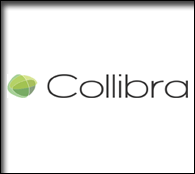Barbells, transparency and tech’s role
by Eric Norlin on Sep.23, 2008, under general, industry stuff
The news around the “financial crisis” on Wall Street has been everywhere as of late. I’m personally still sorting through things a bit, but I’ve started to piece some things together — which, if you can hang with me long enough, might just lead back to technology:
1. This was not the fault of “short sellers.” Don’t believe the hype on this one. It’s obvious and anyone that’s taken “markets 101″ knows that short sellers aren’t evil. That does not mean that the “system” isn’t broken. For the life of me, I don’t understand why the SEC is temporarily banning short selling on a couple hundred stocks, but won’t institute the “uptick rule.”
2. The real problems here have been two-fold — 1) inteconnected, highly-leveraged financial instruments that even the creators didn’t fully understand; 2) a near total lack of transparency into what these “instruments” actually represented.
3. In both of the cases in #2, technology seems to have played a very big role (or lack of role). In the instance of highly-leveraged instruments, technology (in the form of “fancy new smart guy software”) made people that are supposed to manage risk VERY comfortable with extreme levels of risk (I think 30 to 1 is pretty extreme). In the instance of a lack of transparency, technology has not gotten sufficiently sophisticated enough to provide an instantaneous, real-time, in-depth look into how interconnected financial securities are behaving relative to other measures of value (both liquid and illiquid). The *key* here (I think; it’s a guess) is the *interconnected* part of the transparency.
4. Roger Ehrenberg is completely right in his thoughts about how all of this results in a “barbell shape” for the financial industry. I would argue that the dotcom bust did EXACTLY the same thing to the tech world. After the bubble burst, we found ourselves with a couple of giants, and a whole bunch of highly-focused, niche players that were lean as hell.
5. My question, then, is this: If the “barbell” phenomenon that happened to the tech industry is now happening to the financial industry, are those two related? I suspect, “yes.”
6. My “yes” is based on a gut-reaction that’s saying that technology’s relentless networking (in the complex adaptive systems sense) of everything is bringing an interconnected-ness to industries that simply wasn’t there before (which is to say its removing friction at a basic level of business *structure* in stunning ways). That interconnected-ness led to the problems of transparency that were really the downfall of the investment banks; a lack of transparency that was supercharged and aided by the supposed comfort of “algorithms” that “managed” risk (yea right).
That’s the outline of my thinking to this point. Bottom line: there are meta-changes happening to business itself akin to our move to industrial economies. Note to business book writers: those changes will much more likely result in pain like this than in everyone being a “free agent nation”, selling personal shares in ourselves, or finding some new enlightened way of working.
However, none of that is to say that this isn’t a grand time to be operating in the open spaces of business. Technology’s razor is cutting both ways. At the end of the day, technology will probably be seen to both play a major role in the wall street mess, and be the solution that helps provide needed levels of transparency for modern financial instruments. I believe the greeks called it pharmakos - the scapegoat that is sacrificed to heal the community.









